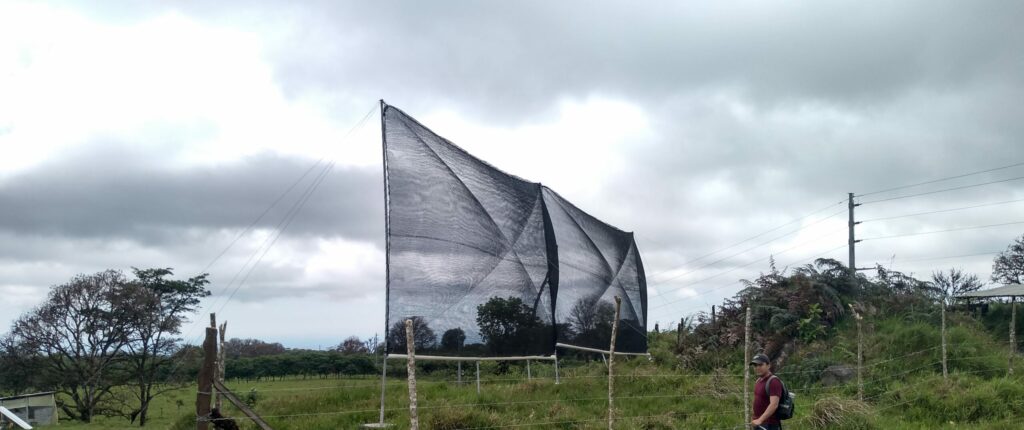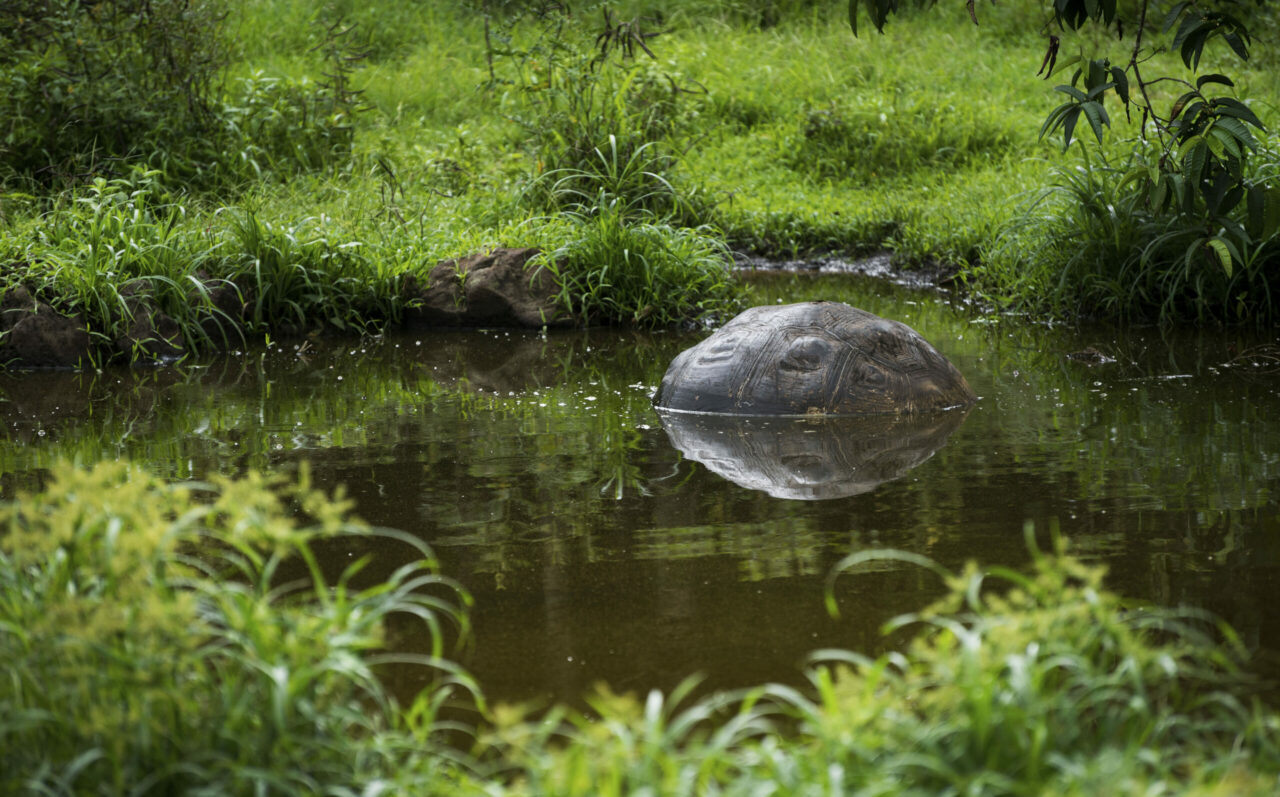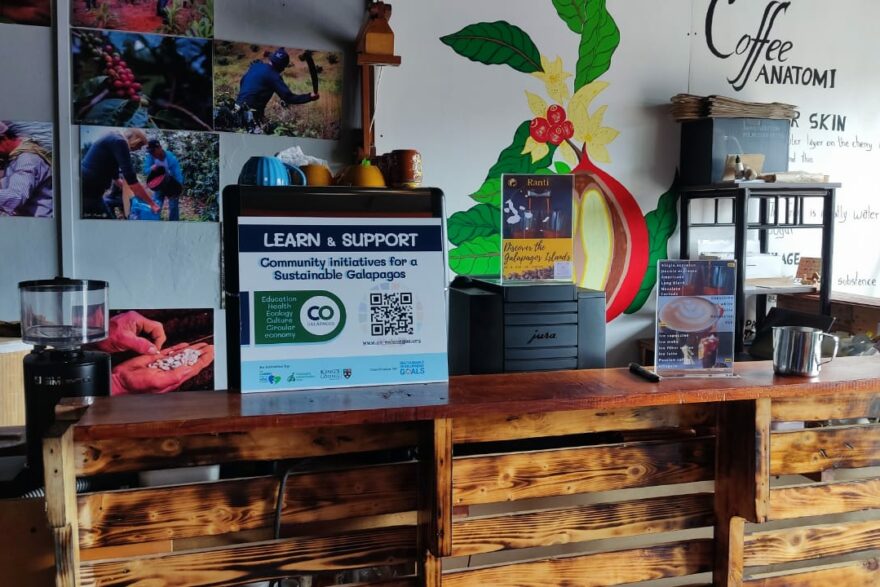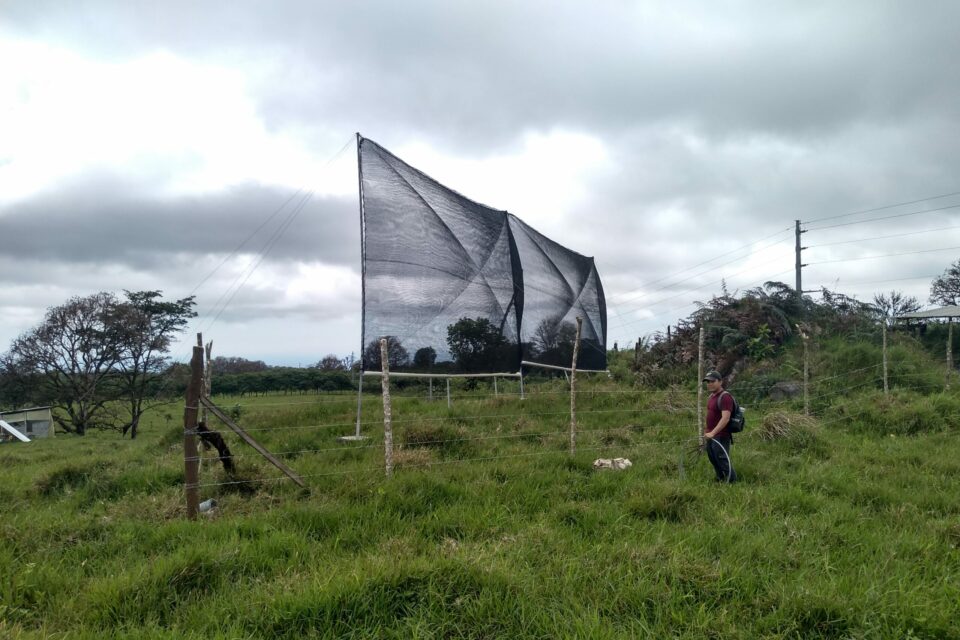
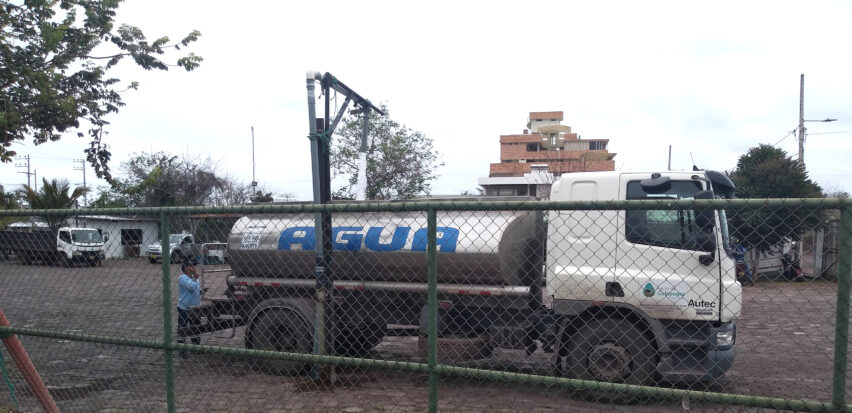
Overview
Fresh water is hard to come by in the highlands of Santa Cruz. This project will run trials of rain and fog harvesting technology to reduce farmers’ reliance on tankers delivering fresh water from the lowland town of Puerto Ayora.
Project Partners

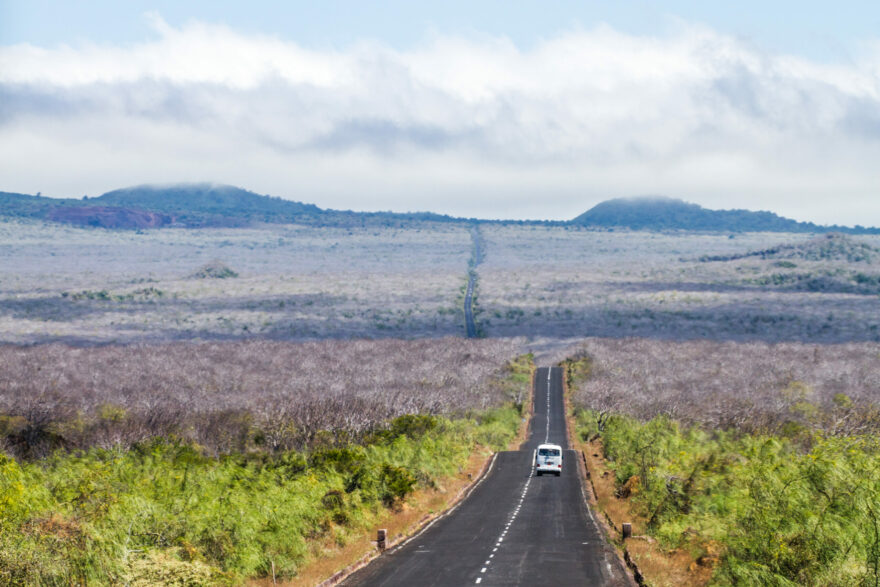
The problem
Highland communities, including farmers, suffer from severe water scarcity on Santa Cruz island. They rely heavily on water supplies transported by tanker from the lowland town of Puerto Ayora. This reliance produces a range of negative environmental impacts, including direct and indirect greenhouse gas emissions, as well as declines in crop yields that necessitate food imports. Despite the acknowledgement by local institutions of these prevailing challenges in supplying Santa Cruz with sustainably sourced water resources, as exemplified in the Galapagos 2030 Strategic Plan, a lack of capacity to develop off-grid water capture has prevented necessary changes from being integrated into local water management systems.
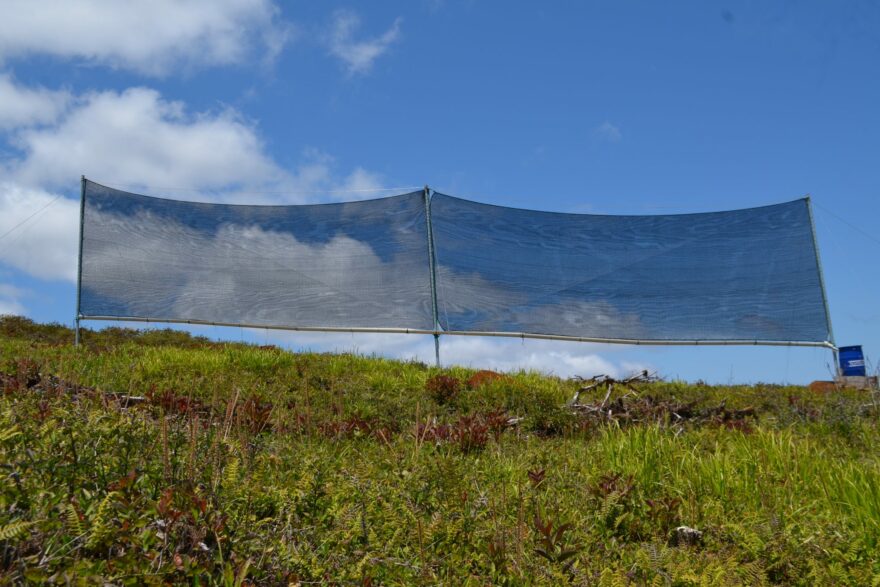
How we’re tackling it
Harvesting fog and rainwater may serve as a solution for alleviating issues connected with unsustainable water supplies in Santa Cruz. This project is led by Dr Charlie Ferguson in collaboration with local NGO Fundación Un Cambio por la Vida (FUNCAVID) and GCT. The project will evaluate the value that fog and rainwater harvesting may have for agricultural smallholders, by potentially reducing their reliance on lowland water supplies. Over the course of one year, a monitoring programme will collect weekly data on the quantity and quality of water supplied to smallholders through these technologies and surveys will be used to investigate how user perceptions fluctuate.
Sixteen different case study sites have been established across the highlands of Santa Cruz to assess the ability of fog and rainwater harvesting to reduce smallholdings’ reliance on water brought in by tankers. Between March and May 2023, across all 16 study sites, the project assisted with the collection of over 65,000 litres – this equates to a direct saving of approximately 0.2 tonnes of CO2.
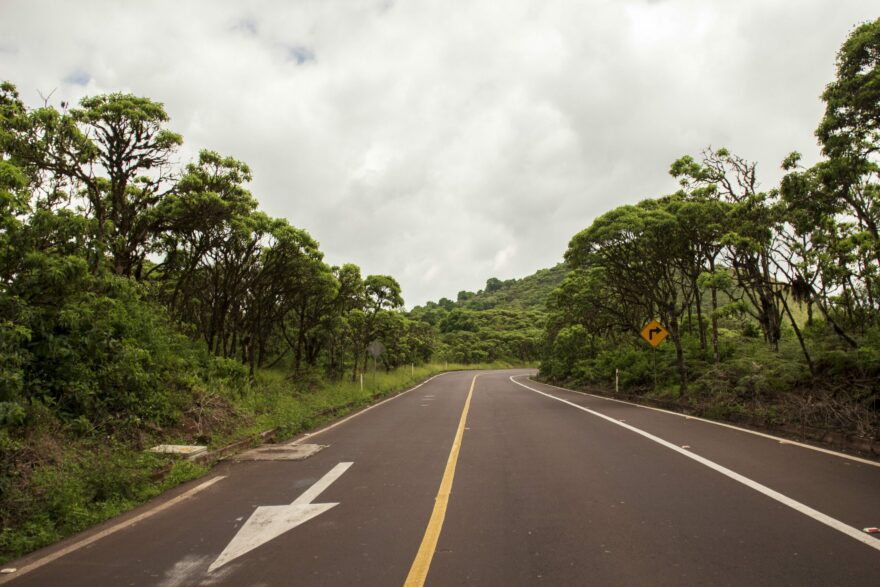
Project goals
The data collected over the course of the project will be used to inform local institutions, including the local water authority and municipality, on the best course of action to take in water management frameworks. Local farmers will also be provided with a community educational programme focused on best practice.
There will be three project phases:
- Implementation – work with local highland smallholdings to construct technologies (2022)
- Monitoring – measure the quantity and quality of water yields, as well as user perception (2022-2023)
- Reporting – produce outputs to influence highland water management (2023)
This project is kindly supported by
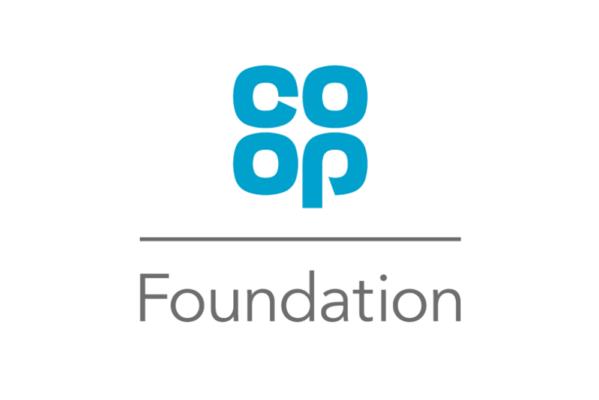
Project updates

How you can help
With your help, we can safeguard the future of these Enchanted Isles.
